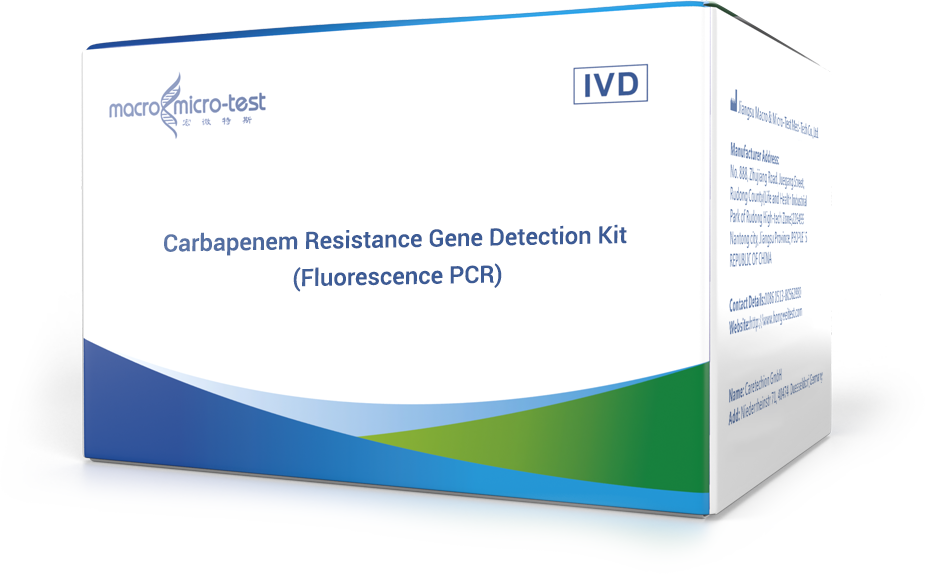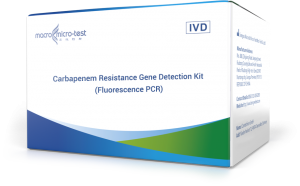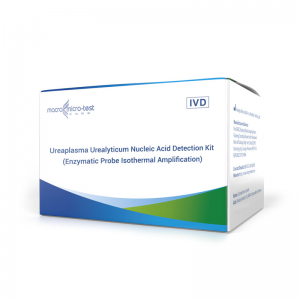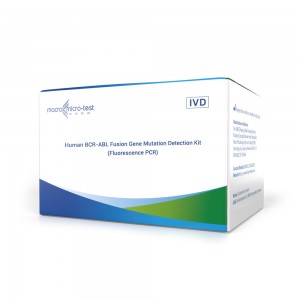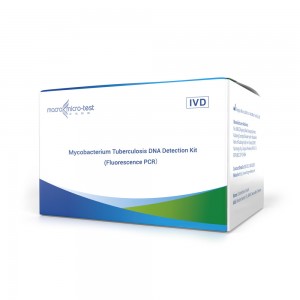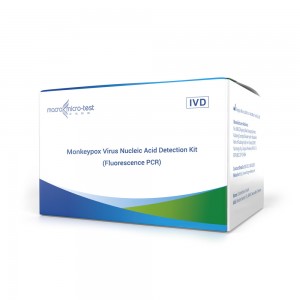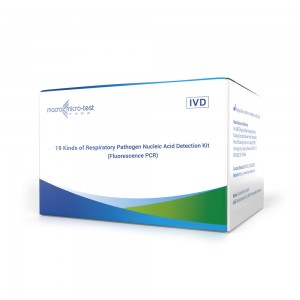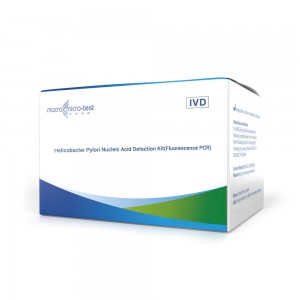Carbapenem Resistance Gene (KPC/NDM/OXA 48/OXA 23/VIM/IMP)
Product name
HWTS-OT045 Carbapenem Resistance Gene (KPC/NDM/OXA 48/OXA 23/VIM/IMP) Detection Kit (Fluorescence PCR)
Epidemiology
Carbapenem antibiotics are atypical β-lactam antibiotics with the broadest antibacterial spectrum and strongest antibacterial activity. Because of its stability to β-lactamase and low toxicity, it has become one of the most important antibacterial drugs for the treatment of severe bacterial infections. Carbapenems are highly stable to plasmid-mediated extended-spectrum β-lactamases (ESBLs), chromosomes, and plasmid-mediated cephalosporinases (AmpC enzymes).
Channel
| PCR-Mix 1 | PCR-Mix 2 | |
| FAM | IMP | VIM |
| VIC/HEX | Internal Control | Internal Control |
| CY5 | NDM | KPC |
| ROX |
OXA48
|
OXA23 |
Technical Parameters
| Storage |
≤-18℃ |
| Shelf-life | 12 months |
| Specimen Type | Sputum, pure colonies, rectal swab |
| Ct | ≤36 |
| CV | ≤5.0% |
| LoD | 103CFU/mL |
| Specificity | a) The kit detects the standardized company negative references, and the results meet the requirements of the corresponding references.
b) The results of the cross-reactivity test show that this kit has no cross reaction with other respiratory pathogens, such as Klebsiella pneumoniae, Acinetobacter baumannii, Pseudomonas aeruginosa, Streptococcus pneumoniae, Neisseria meningitidis, Staphylococcus aureus, Klebsiella oxytoca, Haemophilus influenzae, Acinetobacter junii, Acinetobacter haemolyticus, Legionella pneumophila, Escherichia coli, Pseudomonas fluorescens, Candida albicans, Chlamydia pneumoniae, Respiratory adenovirus, Enterococcus, or samples containing other drug-resistant genes CTX, mecA, SME, SHV, TEM, etc. c) Anti-interference: Mucin, Minocycline, Gentamicin, Clindamycin, Imipenem, Cefoperazone, Meropenem, Ciprofloxacin Hydrochloride, Levofloxacin, Clavulanic acid, Roxithromycin are selected for interference test, and the results show that the above-mentioned interfering substances have no interfering reaction to the detection of carbapenem resistance genes KPC, NDM, OXA48, OXA23, VIM, and IMP. |
| Applicable Instruments | Applied Biosystems 7500 Real-Time PCR Systems
QuantStudio®5 Real-Time PCR Systems SLAN-96P Real-Time PCR Systems (Hongshi Medical Technology Co., Ltd. ) LightCycler®480 Real-Time PCR system LineGene 9600 Plus Real-Time PCR Detection System (FQD-96A,Hangzhou Bioer technology) MA-6000 Real-Time Quantitative Thermal Cycler (Suzhou Molarray Co., Ltd.) BioRad CFX96 Real-Time PCR System BioRad CFX Opus 96 Real-Time PCR System |
Work Flow
Option 1.
Recommended extraction reagent: Macro & Micro-Test General DNA/RNA Kit (HWTS-3019-50, HWTS-3019-32, HWTS-3019-48, HWTS-3019-96) (which can be used with Macro & Micro-Test Automatic Nucleic Acid Extractor (HWTS-3006C, HWTS-3006B)) by Jiangsu Macro & Micro-Test Med-Tech Co., Ltd.. Add 200μL of normal saline to the thallus precipitate. Subsequent steps should follow the instructions for extraction, and the recommended elution volume is 100μL.
Option 2.
Recommended extraction reagent: Nucleic Acid Extraction or Purification Reagent (YDP302) by Tiangen Biotech (Beijing) Co., Ltd. The extraction should be started in strict accordance with step 2 of the instruction for use (add 200μL of buffer GA to the thallus precipitate, and shake until the thallus are completely suspended). Use the RNase/DNase free water for elution, and the ecommended elution volume is 100μL.
Option 3.
Recommended extraction reagent: Macro & Micro-Test Sample Release Reagent. The sputum sample needs to be washed by adding 1mL of normal saline to the above-mentioned treated thallus precipitate, centrifuged at 13000r/min for 5 minutes, and the supernatant is discarded (keep 10-20µL of supernatant). For pure colony and rectal swab, add 50μL of sample release reagent directly to the above-mentioned treated thallus precipitate, and the subsequent steps should be extracted according to the instruction for use.

